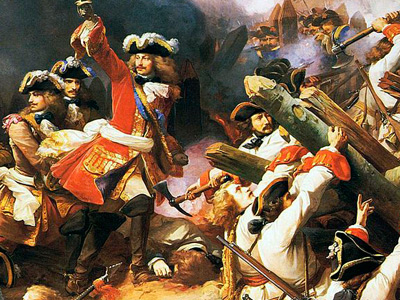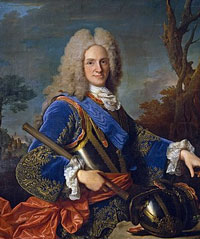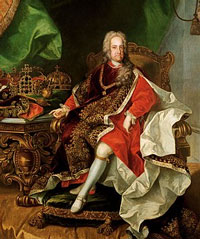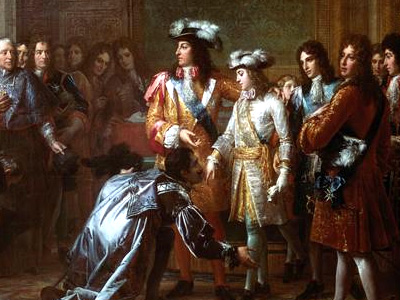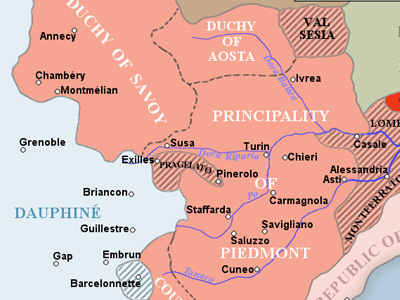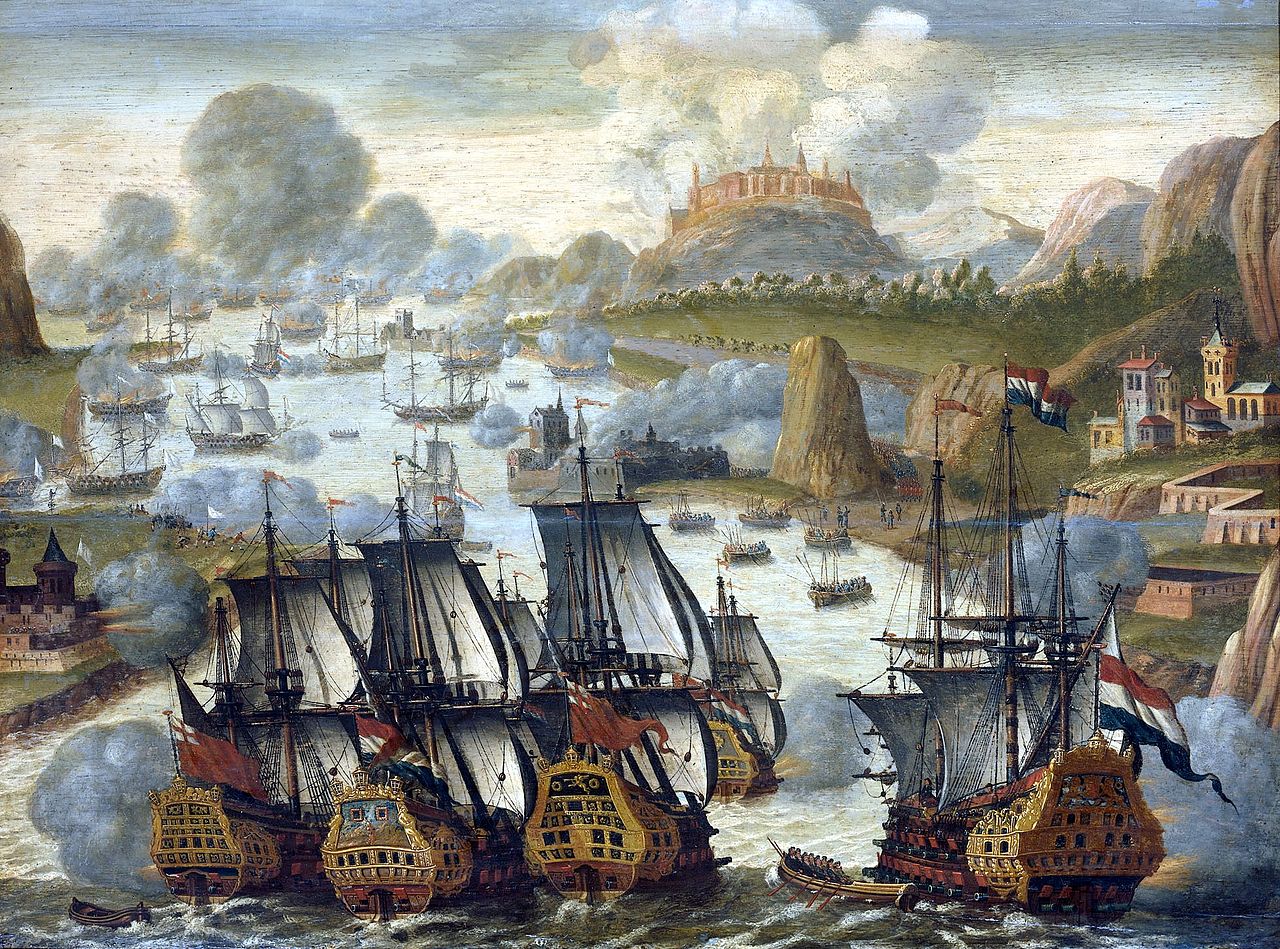War of the Spanish Succession (1702–1715)
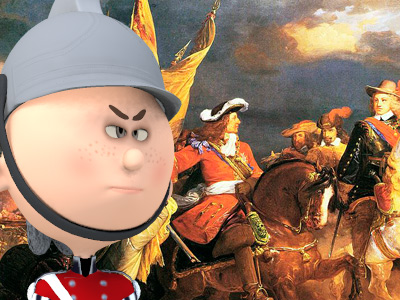
Preliminary Peace Talks
The new Harley ministry in London sought the same goals for Great Britain as had the Godolphin ministry, that is, to ensure the country's safety, prevent outside interference in its internal affairs, and secure its trade abroad. But there was one big difference – their readiness to commit to peace. As early as August 1710 the Tories had initiated secret talks with the French, seeking mutual ground whereon Great Britain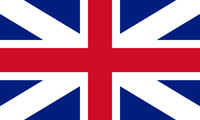 The Kingdom of Great Britain was a sovereign country in Western Europe from 1 May 1707 to the end of 31 December 1800. The state was created by the 1706 Treaty of Union and ratified by the Acts of Union 1707, which united the kingdoms of England (which included Wales) and Scotland to form a single kingdom encompassing the whole island of Great Britain and its outlying islands, with the exception of the Isle of Man and the Channel Islands. and France
The Kingdom of Great Britain was a sovereign country in Western Europe from 1 May 1707 to the end of 31 December 1800. The state was created by the 1706 Treaty of Union and ratified by the Acts of Union 1707, which united the kingdoms of England (which included Wales) and Scotland to form a single kingdom encompassing the whole island of Great Britain and its outlying islands, with the exception of the Isle of Man and the Channel Islands. and France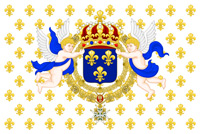 The Kingdom of France is the historiographical name or umbrella term given to various political entities of France in the medieval and early modern period. It was one of the most powerful states in Europe since the High Middle Ages. It was also an early colonial power, with possessions around the world. Colonial conflicts with Great Britain led to the loss of much of its North American holdings by 1763. The Kingdom of France adopted a written constitution in 1791, but the Kingdom was abolished a year later and replaced with the First French Republic. could dictate peace to the rest of Europe. Initially, Harley and Shrewsbury conducted these talks through the Jacobite Earl of Jersey, and through Torcy's London agent, François Gaultier, who between them sketched out the broad outline of a peace agreement. At first the Tories had offered no concrete concessions to the French, but when news of the Allied retreat from Madrid and the defeat at Brihuega reached London in December, Anne's ministers finally resolved to abandon Spain and the Indies to Philip V (provided the thrones of France and Spain remained separate) in return for exclusive territorial and trade advantages. To this end they were aided by the sudden death in April 1711 of Holy Roman
The Kingdom of France is the historiographical name or umbrella term given to various political entities of France in the medieval and early modern period. It was one of the most powerful states in Europe since the High Middle Ages. It was also an early colonial power, with possessions around the world. Colonial conflicts with Great Britain led to the loss of much of its North American holdings by 1763. The Kingdom of France adopted a written constitution in 1791, but the Kingdom was abolished a year later and replaced with the First French Republic. could dictate peace to the rest of Europe. Initially, Harley and Shrewsbury conducted these talks through the Jacobite Earl of Jersey, and through Torcy's London agent, François Gaultier, who between them sketched out the broad outline of a peace agreement. At first the Tories had offered no concrete concessions to the French, but when news of the Allied retreat from Madrid and the defeat at Brihuega reached London in December, Anne's ministers finally resolved to abandon Spain and the Indies to Philip V (provided the thrones of France and Spain remained separate) in return for exclusive territorial and trade advantages. To this end they were aided by the sudden death in April 1711 of Holy Roman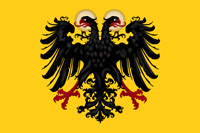 The Holy Roman Empire was a political entity in Western, Central, and Southern Europe that developed during the Early Middle Ages and continued until its dissolution in 1806 during the Napoleonic Wars. From the accession of Otto I in 962 until the twelfth century, the Empire was the most powerful monarchy in Europe. The empire reached the apex of territorial expansion and power in the mid-thirteenth century, but overextending led to partial collapse. Emperor Joseph I. Joseph I's brother, Archduke Charles (Charles III of Spain), was his sole male heir, yet if Charles III was to succeed to the Austrian inheritance as well as that of Spain, the balance of power in Europe would once again be overthrown, this time in favour of the Austrian Habsburgs
The Holy Roman Empire was a political entity in Western, Central, and Southern Europe that developed during the Early Middle Ages and continued until its dissolution in 1806 during the Napoleonic Wars. From the accession of Otto I in 962 until the twelfth century, the Empire was the most powerful monarchy in Europe. The empire reached the apex of territorial expansion and power in the mid-thirteenth century, but overextending led to partial collapse. Emperor Joseph I. Joseph I's brother, Archduke Charles (Charles III of Spain), was his sole male heir, yet if Charles III was to succeed to the Austrian inheritance as well as that of Spain, the balance of power in Europe would once again be overthrown, this time in favour of the Austrian Habsburgs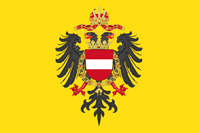 The Archduchy of Austria was a major principality of the Holy Roman Empire and the nucleus of the Habsburg monarchy. With its capital at Vienna, the archduchy was centered at the Empire's southeastern periphery. The archduchy's history as an imperial state ended with the dissolution of the Holy Roman Empire in 1806. It was replaced with the Lower and Upper Austria crown lands of the Austrian Empire.. For the Tories, the threat of a dominant Habsburg empire was no more desirable than a Bourbon one, but for now the need for the Grand Alliance remained: peace was necessary, yet in order to strengthen their negotiating position Queen Anne's ministers stood by the basic strategy of attacking Louis XIV across multiple fronts. In 1711 this was to include a revival of an earlier plan to seize the French stronghold of Quebec in North America.
The Archduchy of Austria was a major principality of the Holy Roman Empire and the nucleus of the Habsburg monarchy. With its capital at Vienna, the archduchy was centered at the Empire's southeastern periphery. The archduchy's history as an imperial state ended with the dissolution of the Holy Roman Empire in 1806. It was replaced with the Lower and Upper Austria crown lands of the Austrian Empire.. For the Tories, the threat of a dominant Habsburg empire was no more desirable than a Bourbon one, but for now the need for the Grand Alliance remained: peace was necessary, yet in order to strengthen their negotiating position Queen Anne's ministers stood by the basic strategy of attacking Louis XIV across multiple fronts. In 1711 this was to include a revival of an earlier plan to seize the French stronghold of Quebec in North America.
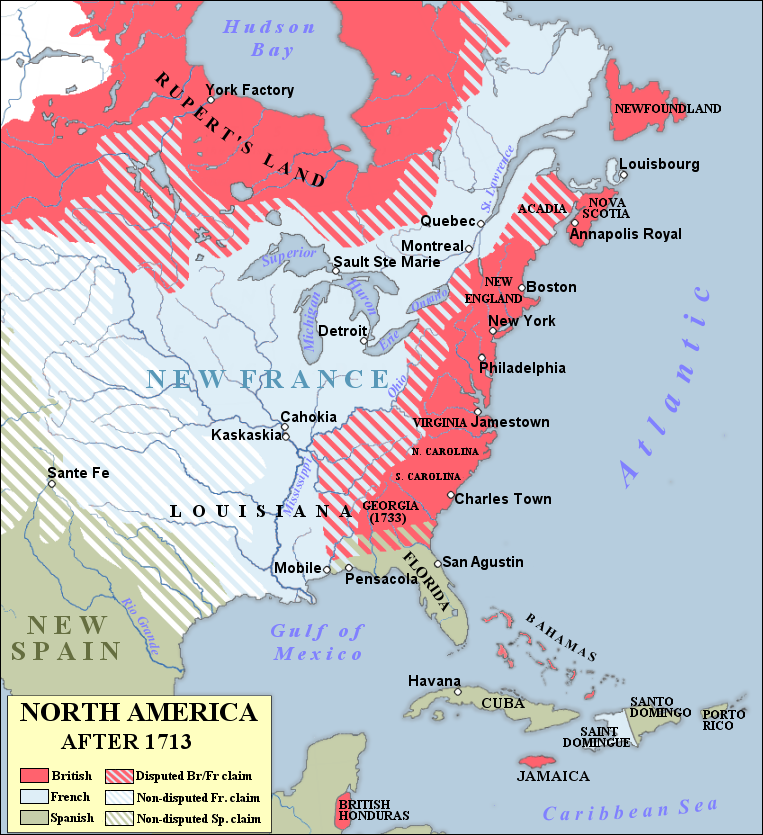
North America in the years following the War of the Spanish Succession. The war in North America was named Queen Anne's War by British colonists
Up till now the war in North America had been a relatively minor affair fought between English, Spanish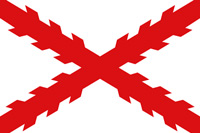 The Spanish Empire was a colonial empire governed by Spain and its predecessor states between 1492 and 1976. One of the largest empires in history, it was the first to usher the European Age of Discovery and achieve a global scale, controlling vast territory. It was one of the most powerful empires of the early modern period, reaching its maximum extent in the 18th century., and French colonists who rallied their Indian allies to attack frontier settlements for trade and territorial advantage. The French were aware of the danger of their position between Rupert's Land in the north and the British colonies to the south, but the expansion of French settlements from Louisiana, along the Mississippi River to the Great Lakes and the Saint Lawrence River in Canada, threatened to encircle the British settlers. For the most part the English in North America had been left to their own devices, but the growing power of France had persuaded the new Tory ministry to take direct action to secure the colonies and its commerce for Britain. Regular troops were taken from Flanders for the Quebec campaign, but the naval expedition against the French stronghold in August 1711 ended in disaster.
The Spanish Empire was a colonial empire governed by Spain and its predecessor states between 1492 and 1976. One of the largest empires in history, it was the first to usher the European Age of Discovery and achieve a global scale, controlling vast territory. It was one of the most powerful empires of the early modern period, reaching its maximum extent in the 18th century., and French colonists who rallied their Indian allies to attack frontier settlements for trade and territorial advantage. The French were aware of the danger of their position between Rupert's Land in the north and the British colonies to the south, but the expansion of French settlements from Louisiana, along the Mississippi River to the Great Lakes and the Saint Lawrence River in Canada, threatened to encircle the British settlers. For the most part the English in North America had been left to their own devices, but the growing power of France had persuaded the new Tory ministry to take direct action to secure the colonies and its commerce for Britain. Regular troops were taken from Flanders for the Quebec campaign, but the naval expedition against the French stronghold in August 1711 ended in disaster.
The campaign in North America did nothing to shake the common Whig belief that America was to be won by defeating France in Europe. However, the failure at Quebec was somewhat compensated by Marlborough's final victory in the field. Anne's Captain-General no longer had the influence he enjoyed under the Godolphin ministry: his wife's relationship with the Queen had ended acrimoniously and he was now under the influence of Harley, now the Earl of Oxford and Lord High Treasurer. Nevertheless, Marlborough still commanded the Anglo-Dutch forces in northern France, and in August he outmanoeuvred Villars and crossed the formidable Ne Plus Ultra lines, before capturing Bouchain on 12 September. The campaign was not decisive, however. Arras, Cambrai, Le Quesnoy, and Landrecies still stood between the Duke and Paris, and it would take at least one more campaign to secure their capitulation.
On 27 September Charles III reluctantly left Barcelona to take possession of the Austrian hereditary lands and the Imperial crown, leaving behind his wife Elizabeth as a pledge to the Spanish. In order to facilitate the Imperial election at Frankfurt – and keep the electors loyal to the Habsburgs – Eugene and the troops still in Austrian pay (no more than 16,000 men) had already moved from Flanders to the Rhine where the French were massing for a new offensive (or to at least disrupt the Imperial election). In the event Eugene's campaign proved uneventful and in October, shortly after his embarkation at Genoa, Archduke Charles was elected Holy Roman Emperor Charles VI. Yet even before he had left Barcelona Charles knew the Allies were on the point of making peace and that Spain was no longer within the dynasty's grasp. Vendôme sought to hasten the Allied departure from Catalonia by moving on Tarragona and Barcelona; several small towns fell as a prelude, but Starhemberg fought back, and the Bourbons were unable to secure a military solution that year. Meanwhile, on the Spanish-Portuguese border Vila Verde had replaced Fronteira as commander of the Portuguese army, and the Earl of Portmore succeeded Galway as British commander. However, the campaign against de Bay proved uneventful as it became clear that the momentum was now with the peace negotiations.
Oxford (Harley) had refused to make a separate treaty between Britain and France, but ultimately he had excluded the Dutch from negotiating the preliminary articles of peace, which together with French ministers he would present to the States General as a done deal. After much cross-Channel diplomacy the final proposals were agreed. First, there were the vague public preliminaries made by Britain on behalf of itself and the Allies, namely: French recognition of Queen Anne and the Act of Settlement; a guarantee that the French and Spanish crowns would remain separate; a restoration of international commerce; protective 'barriers' for the Dutch Republic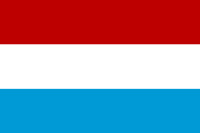 The Dutch Republic was a confederation that existed from 1579, during the Dutch Revolt, to 1795. It was a predecessor state of the Netherlands and the first fully independent Dutch nation state. Although the state was small and contained only around 1.5 million inhabitants, it controlled a worldwide network of seafaring trade routes. The income from this trade allowed the Dutch Republic to compete militarily against much larger countries. It amassed a huge fleet of 2,000 ships, initially larger than the fleets of England and France combined., Austria
The Dutch Republic was a confederation that existed from 1579, during the Dutch Revolt, to 1795. It was a predecessor state of the Netherlands and the first fully independent Dutch nation state. Although the state was small and contained only around 1.5 million inhabitants, it controlled a worldwide network of seafaring trade routes. The income from this trade allowed the Dutch Republic to compete militarily against much larger countries. It amassed a huge fleet of 2,000 ships, initially larger than the fleets of England and France combined., Austria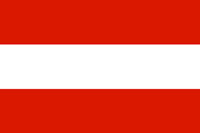 The Archduchy of Austria was a major principality of the Holy Roman Empire and the nucleus of the Habsburg monarchy. With its capital at Vienna, the archduchy was centered at the Empire's southeastern periphery. The archduchy's history as an imperial state ended with the dissolution of the Holy Roman Empire in 1806. It was replaced with the Lower and Upper Austria crown lands of the Austrian Empire., and the Holy Roman Empire against future French aggression; and a secret agreement that France would cooperate in securing for the Duke of Savoy – Britain's close ally – those parts of Italy which the British deemed necessary to counter Habsburg domination. On top of these general concessions were the secret articles pertaining only to Britain, including negotiations for an Anglo-French commercial treaty, and the demolition of the privateer base of Dunkirk. There were also the advantages which Britain had previously hoped to gain by supporting the Habsburg cause in Spain and which were now to be granted by Philip V, including the cession of Gibraltar, Minorca, and the Asiento (slaving contract) for 30 years. The agreement was laid down as the Preliminary Articles of London, signed on 8 October 1711 by St. John and the Earl of Dartmouth for Great Britain, and Nicolas Mesnager for France.
The Archduchy of Austria was a major principality of the Holy Roman Empire and the nucleus of the Habsburg monarchy. With its capital at Vienna, the archduchy was centered at the Empire's southeastern periphery. The archduchy's history as an imperial state ended with the dissolution of the Holy Roman Empire in 1806. It was replaced with the Lower and Upper Austria crown lands of the Austrian Empire., and the Holy Roman Empire against future French aggression; and a secret agreement that France would cooperate in securing for the Duke of Savoy – Britain's close ally – those parts of Italy which the British deemed necessary to counter Habsburg domination. On top of these general concessions were the secret articles pertaining only to Britain, including negotiations for an Anglo-French commercial treaty, and the demolition of the privateer base of Dunkirk. There were also the advantages which Britain had previously hoped to gain by supporting the Habsburg cause in Spain and which were now to be granted by Philip V, including the cession of Gibraltar, Minorca, and the Asiento (slaving contract) for 30 years. The agreement was laid down as the Preliminary Articles of London, signed on 8 October 1711 by St. John and the Earl of Dartmouth for Great Britain, and Nicolas Mesnager for France.
For the British, there now remained the problem of convincing their allies to accept those Preliminary articles which had been made public as a basis for a future peace congress. However, the court in Vienna were dissatisfied with Britain's evident change in policy, and were suspicious that Anne's government had already consigned Spain and the Indies to the Bourbons. Consequently, Charles VI at first rejected the idea of a peace conference, but once the Dutch were pulled into line by Britain's threat to abandon them and force them to fight on alone, the Emperor reluctantly consented. George Louis, Elector of Hanover, also thought the Tories were betraying the Grand Alliance and their cause, and as heir to the British throne he was concerned that if the Bourbons were established in Spain they would actively support James Edward Stuart's claim to succeed Queen Anne. His ambition to raise his electorate to the status of a kingdom also necessitated his continuing support for the Emperor, and although he accepted the principle of a peace congress, the Elector refused to abandon Charles VI's claim to the Spanish succession. In Britain, there was also opposition in the House of Lords, notably from the influential Tory, the Earl of Nottingham, whose motion that 'no peace was safe or honourable to Great Britain or Europe if Spain and the West Indies were allotted to any branch of the House of Bourbon', was carried on 7 December.
To rouse public feeling against the Whigs and their European allies the Tories had turned to propaganda, notably Jonathan Swift's The Conduct of the Allies. In his pamphlet (composed with ministerial assistance) Swift protested against Allied intransigence at The Hague and Geertruidenberg peace talks, and he reminded the public of the original Treaty of Grand Alliance where no mention was made of driving Philip V from Spain. Swift lamented that the early Allied victories had led to hubris and intransigence, and he rejected the preoccupation with the security of the Low Countries at the expense of a naval and colonial war. He also denigrated Marlborough, a leading member of the former administration and opponent of the new ministry's direction who, now that the Preliminaries had been unilaterally agreed with France, was no longer needed. To further discredit the Duke charges of financial corruption during the war were lodged against him in Parliament, leading to his dismissal at the end of 1711.
Tory propaganda was built in part on a foundation of anti-Dutch and anti-Habsburg xenophobia, but Britain was being drained of its resources, and many thought the country had borne too much of the burden pursuing their allies' interests while being denied any advantage for itself. Domestically, Oxford had the backing of the Queen, the war-weary public, the House of Commons; support from the House of Lords was secured by the expedient of the Queen creating 12 new Tory peers. Nevertheless, the Whigs and some Tory Lords refused to accept the possibility of Philip V remaining in Spain, and persisted in supporting the Habsburg bloc as a counterbalance to powerful France. To others, Charles VI's succession as Holy Roman Emperor and inheritor of the Habsburg lands meant supporting his claim to the Spanish succession had long ceased to be politically desirable. The danger of too much power accumulating to Austria had convinced many, including Daniel Defoe, the chief Whig propagandist, to re-think Grand Strategy.
HISTORY
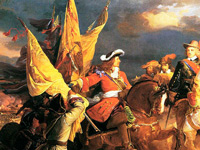
RESOURCES
This article uses material from the Wikipedia article "War of the Spanish Succession", which is released under the Creative Commons Attribution-Share-Alike License 3.0.
© Stories Preschool. All Rights Reserved.
